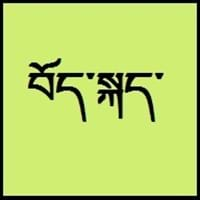Countries
China, Nepal
Djibouti, Kenya, Somalia
National Language
Nepal, Tibet
Somalia
Second Language
Not spoken in any of the countries
Not spoken in any of the countries
Speaking Continents
Asia
Africa, Middle East
Minority Language
China, India, Nepal
Yemen
Regulated By
Committee for the Standardisation of the Tibetan Language
National Languages Committee, Regional Somali Language Academy
Interesting Facts
- Tibetan dialects vary alot, so it's difficult for tibetans to understand each other if they are not from same area.
- Tibetan is tonal with six tones in all: short low, long low, high falling, low falling, short high, long high.
- Somali language is one of the best documented Afro-Asiatic languages.
- One of the most widely spoken of the Cushitic languages is the Somali Language.
Similar To
Not Available
Afar and Oromo Language
Derived From
Not Available
Arabic Language
Alphabets in
Tibetan-Alphabets.jpg#200
Somali-Alphabets.jpg#200
Scripts
Tibetan alphabet, Tibetan Braille
Arabic, Latin, Osmanya
Writing Direction
Left-To-Right, Horizontal
Left-To-Right, Horizontal
Hello
བཀྲ་ཤིས་བདེ་ལེགས། (tashi delek)
Hello
Thank You
ཐུགས་རྗེ་ཆེ་། (tujay-chay)
Waad ku mahadsan tahay
How Are You?
ཁྱེད་རང་སྐུ་གཇུགས་བདེ་པོ་ཡིན་པས།
(kayrang kusu debo yimbay?)
Sidee tahay ?
Good Night
གཟིམ་ལཇག་གནང་དགོས་། (sim-jah nahng-go)
Habeenka Good
Good Evening
དགོང་དྲོ་བདེ་ལེགས།
Evening Good
Good Afternoon
ཉིན་གུང་བདེ་ལེགས།
galab wanaagsan
Good Morning
སྔ་དྲོ་བདེ་ལེགས། (nga-to delek)
Subax wanaagsan
Please
thu-je zig / ku-chee.
Fadlan
Sorry
ཀོང་དགས་། (gawn-da)
sorry
Bye
ག་ལེར་ཕེབས་། (kha-leh phe)
caraysiiyo
I Love You
ང་ཁྱེད་རང་ལ་དགའ་པོ་ཡོད་ (nga kayrâng-la gawpo yö)
Waan ku jeclahay
Excuse Me
དགོངས་དག བཟོད་དུ་གསོལ། ཐུགས་རྗེ་གཟིགས།
iga raali ahow
Dialect 1
Central Tibetan
Northern Somali
Where They Speak
China, India, Nepal
Gabon, Standard Somali
How Many People Speak
Not Available
Dialect 2
Khams Tibetan
Benaadir
Where They Speak
Bhutan, China
Georgia, The capital of Mogadishu
How Many People Speak
Not Available
Dialect 3
Amdo Tibetan
Af-Ashraaf
Where They Speak
China
Standard Somali
How Many People Speak
Not Available
Speaking Population
Not Available
Not Available
Native Name
བོད་སྐད་ (pö-gay)
af Soomaali
Alternative Names
Bhotia, Dbus, Dbusgtsang, Phoke, Tibetan, U, Wei, Weizang, Zang
Af-Maxaad Tiri, Af-Soomaali, Common Somali, Soomaaliga
French Name
tibétain
somali
German Name
Tibetisch
Somali
Pronunciation
Not Available
Not Available
Ethnicity
tibetan people
Somalis
Origin
c. 650
19th century
Language Family
Sino-Tibetan Family
Afro-Asiatic Family
Subgroup
Tibeto-Burman
Cushitic
Branch
Not Available
Not Available
Early Forms
Old Tibetan, Classical Tibetan
No early forms
Standard Forms
Standard Tibetan
Somali
Language Position
Not Available
Signed Forms
Tibetan Sign Language
Somali Sign Language
Scope
Not Available
Individual
ISO 639 6
Not Available
Not Available
Glottocode
tibe1272
soma1255
Linguasphere
No data Available
No data available
Language Type
Not Available
Living
Language Linguistic Typology
Not Available
Subject-Object-Verb
Language Morphological Typology
Not Available
Not Available
Tibetan and Somali Greetings
People around the world use different languages to interact with each other. Even if we cannot communicate fluently in any language, it will always be beneficial to know about some of the common greetings or phrases from that language. This is where Tibetan and Somali greetings helps you to understand basic phrases in Tibetan and Somali language. Tibetan word for "Hello" is བཀྲ་ཤིས་བདེ་ལེགས། (tashi delek) or Somali word for "Thank You" is Waad ku mahadsan tahay. Find more of such common Tibetan Greetings and Somali Greetings. These greetings will help you to be more confident when conversing with natives that speak these languages.
Tibetan vs Somali Difficulty
The Tibetan vs Somali difficulty level basically depends on the number of Tibetan Alphabets and Somali Alphabets. Also the number of vowels and consonants in the language plays an important role in deciding the difficulty level of that language. The important points to be considered when we compare Tibetan and Somali are the origin, speaking countries, language family, different greetings, speaking population of these languages. Want to know in Tibetan and Somali, which language is harder to learn? Time required to learn Tibetan is 24 weeks while to learn Somali time required is 52 weeks.





